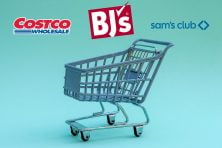10 Ways to Stretch Your Money When You’re Out of Work

Being unemployed carries a heavy weight of financial stress.
When you don’t know when your next paycheck will come, you’re left to pay all your expenses with whatever’s sitting in the bank. Often, it’s not enough.
We’ve rounded up 10 ways to cut costs and save so you can make your money stretch while you’re unemployed.
1. Set Up a Bare-Bones Budget
Transition to a bare-bones budget that prioritizes only essential spending, like your rent or mortgage, utilities and groceries. Pause or cancel monthly costs that aren’t necessary, like your cable subscription or gym membership.
2. Reach Out for Help
Don’t dismiss the idea that your lenders and service providers may be able to help you through this tough financial patch. Many credit card companies have hardship programs that can lower your monthly payments or waive fees. You might be able to switch to an income-based repayment plan for your student loans or request a deferment or forbearance. Contact your creditors and bill collectors to see what assistance they can help you with. Just be sure you understand what’s required to catch up on payments.
3. Take Advantage of No Commute
Not driving to and from work has its benefits. Contact your car insurance company to see if you can lower your premiums now that you’re driving a lot less. Consider renting out your car to bring in extra cash. Getaround is one peer-to-peer car rental platform that pays you to loan your car to strangers.
4. Opt for a Cheaper Cell Phone Plan
Having a reliable phone is essential when you’re applying for jobs, but that doesn’t mean you have to pay over $100 a month for cell service. You can get a cheap cell phone plan for less than $20. Yeah, seriously.
5. Be Strategic About Your Grocery Shopping
Plan out your meals and stick to your list to nix impulse shopping at the grocery store. Limit the frequency of your grocery trips to no more than once a week. Center your meals around what’s on sale — and what you already have at home. Shop generic or ask the brands you use to send you coupons. These other shopping tips will help you save money on groceries, too.
6. Pay for Purchases in Cash
A cash envelope system will keep you from going over your budget. Take only enough cash you can afford to spend when you’re out shopping, and leave the debit and credit cards at home.
7. Save Your Change
Even though you’ve got to restrict your spending, small treats like buying a cup of coffee or ordering a cheap pizza can be a nice boost during the rut of unemployment. Make a habit of rounding up to the nearest dollar when you make a purchase and putting that change aside. As that money adds up, you’ll be able to afford a small treat, guilt-free.

8. Entertain Yourself Without Spending Money
Life on a bare-bones budget doesn’t have to mean absolutely no fun. This list of 100 free things to do will give you ideas for when you need a break from applying to jobs all day.
9. Get Free Goods and Services From Neighbors
When you’re working with a tight budget, anything you can get for free is welcome. Buy Nothing groups, Nextdoor and Craigslist are three platforms where neighbors offer up free items. You could also choose to barter by exchanging something you have (or a service you can provide) for something you need.
10. Check for Cash That’s Been Left Behind
Your state might be sitting on cash owed to you from forgotten security deposits, uncashed paychecks and unknown life insurance policies. Checking to see if you have unclaimed money can be a quick and easy way to boost your bank account. If you’re out of luck going that route, dig through your wallet to see if you’re holding a balance on old gift cards. Remove your couch cushions to unearth spare change. Every little bit helps.
Nicole Dow is a senior writer at The Penny Hoarder.












